We are nearing the end of the second year! If we had to describe the nineteenth and twentieth month in a couple of words, it would be – super agility and vocabulary explosion. But there is a lot more, so join us in exploring all the interesting stuff you can expect in this period of toddler’s life.
Article Contents
1. Boom! Vocabulary just exploded2. Let’s go, break time is over! Running and moving
3. I want to do it alone! Need for independence
4. Sleep, or lack of it, yet again
5. Give me, I want to help! Inclusion in activities
6. What is poo and where did it go?
7. Some funny highlights of 19 and 20 month
If you want to know about earlier stages of the baby’s life first, and you want to read about the months from the first year, you can start with the first year of a child’s life section. And if you’re a new parent, or if you’re just preparing to become one, you can start with the first month of the newborn’s life.
Boom! Vocabulary just exploded
We already mentioned (even bragged a bit) how our toddler has really strong verbal skills. Her understanding was pretty impressive and that is most important at this age. But her speech production went into overdrive these last two months. It really happened suddenly. One day she just started to repeat the words she heard. Even pretty complex ones like theater and monkey. That made us gasp in surprise, but also a little wary. Now we have to pay close attention to model correct and appropriate speech. And no more gossiping!
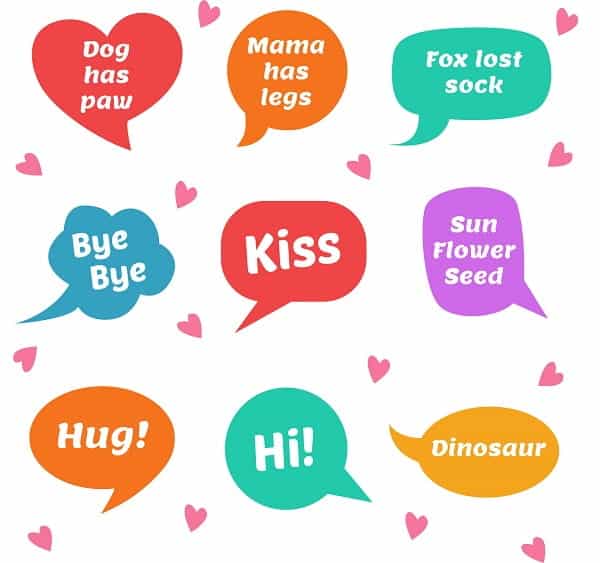
By the end of the 19th month, she also started to produce sentences. Mostly commands: “Mama give food”, Dada hold Lea”. No way to pretend you don’t understand now. Joking aside, the ability to communicate her wishes more clearly, really helps in day to day life. When nobody understands you, naturally you get frustrated and upset. That’s the main reason why tantrums are more often in nonverbal children. But communication is more than just words – in some cases, you need to get more visual. Good ideas for children who are not talking yet are pictures showing daily activities or photos/cards they can point to when they want something.
Children are like sponges and there is no clearer evidence than when a child is learning the language. They learn at such a high pace and interest. Learning is just a normal way of living for them and we should keep that in mind. No need to “teach” your child almost anything, at least not in that way we think of teaching.
Modeling is a way to go – show by example. Talk a lot to your child and leave the opportunity for them to respond. Read with them, but follow their interests. Don’t compare with other children, you already know everyone has their own timeline. But also be aware of potential warning signs and ask for a checkup if you are worried.
Let’s go, break time is over! Running and moving
It really is as we feared. When our Toddler started to walk, she discovered a whole new world of opportunities for hazardous behavior. Nothing is stopping her now in her quest to explore. And mom’s and dad’s exercise (of patience) is brought to a whole new level.
We already talked about the baby’s first steps in the article about 17 and 18 month of toddler’s life. And we did predict she will be running by now. We were not wrong. And not just running, now we also see dancing, spinning and jumping in our little restless mover. That also brings some danger, especially when in a new, unknown place. So mom and dad need to be constantly on the lookout if little rascal is doing something mischievous.
But in the end, we were surprised how fast her walking improved. In 2 months from starting to walk, she was already very stable and would lose balance only on rare occasions. I guess 17 months of preparation did manage to prepare her for walking. Now she is unstoppable. Especially indoors. She just runs up and down the room like the floor is on the fire.
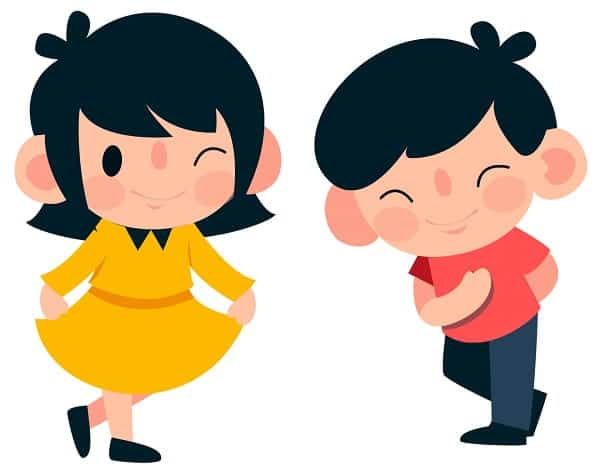
Interestingly, the outside situation can be pretty different. She still prefers any sort of transportation over walking. We stopped using wheels almost in full for the convenience and flexibility of walking. But that means our hands got a lot stronger from all the carrying. And the baby carrier is still standard gear when going out. We do motivate her to walk, and it usually works, but let’s just say that a fast walk to the nearby store suddenly became more than an hour-long effort.
But home (and in the store), whole other story. She will never get tired. And that’s where dancing comes handy to control her need for speed. Sometimes she will dance alone but still prefers to have a partner. So dancing together can be a lot of fun for her and a good exercise for us.
Jumping in the air is still a bit of a challenge but we are getting there. Imitating bunny jumping is a lot of fun so we jump whenever possible. Spinning too! Spinning is great for coordination and balance. There is a strong correlation between the ability to spin efficiently in toddlers and balance skills later in life.
That is moving on two legs in a nutshell. All in all, we are happy, especially now when the days are colder and wet. We are not bothered by it that much and we can go and explore every puddle of water we come across.
I want to do it alone! Need for independence
In the nineteenth month, we experienced the first bigger expression of independence in our toddler. “Alone” and “Lea, Lea” are her words when she wants to do something alone or wants to try without your help. You would be surprised how capable they actually are if we give them the opportunity. In some things, they will fail and call you for help, and that is where we, as parents can step in and save the day.
It is really important to look for signs, predict toddlers need for independence in things he/she is doing. Especially if the language didn’t develop yet. That need for independence can be a strong cause of frustration and end up in tears and tantrums. Because the child wants to be understood, and if we fail in that, it leads to frustration. And with emotional control still not developed, we can expect some nasty reactions.
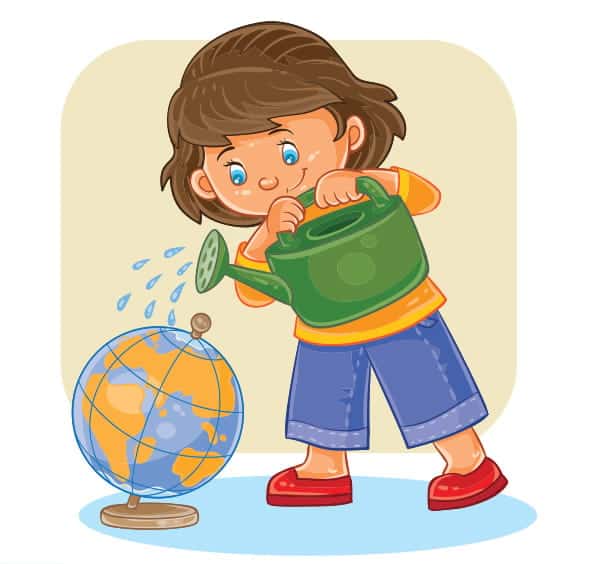
So if the child wants to eat alone, hold the cup alone, try and put on shoes alone, wash hands alone… We must recognize that and let it do it. Curiosity, imitation, and will to control their surroundings are strong factors that will lead the child in asking to try things on its own.
Yes, it can be inconvenient to give a toddler to drink alone from the cup (all floor ends up wet) or to put cream on itself (ends up everywhere but on the skin). But they need to learn sometimes and the first time they try it probably won’t be pretty. Practice makes perfect! And they will be more willing to accept help next time if they see that we respect them and will allow them to try it for themselves. They have independence when they need it!
But don’t worry, it will be a long time until they are independent in the way we usually perceive it. Most of the time, they still don’t mind following your lead and letting you do stuff for them. Also, often they will try to do some things (like put socks on foot), see that it is not so simple and call you for help. But they choose so, you didn’t force them into it. And it costs a few minutes of your life. A lot less than dealing with a tantrum that could arise otherwise.
Sleep, or lack of it, yet again
Oh, sleep, when will you stop being a topic? We had a pretty good period, but then again, the “phase” struck. There is something called 18-month sleep regression. Surprise! Regression means that your child finally (cry!) had some okayish sleep schedule and now it’s back to totally unpredictable sleep patterns. Not wanting to nap and go to sleep, waking every hour – you know it by now. Good news first – it won’t last forever. Bad news – expect 2 to 6 weeks of this.
Let’s talk about why it’s happening. Here are the usual suspects. Teething? Separation anxiety? Moon phase? All of that possibility. Okay, maybe not the moon, but I started to believe anything. The most probable cause though is the need for independence we mentioned already.
Like most of the things in their life, they feel sleep is out of their control. They want to choose when they go to sleep and how long they sleep. Sleeping is no fun and you are missing all the fun stuff you could do instead. They would much rather play or run around the house. Yes, we know they will be terribly tired and unhappy if they don’t stick to some reasonable sleep schedule. But explain that to them!
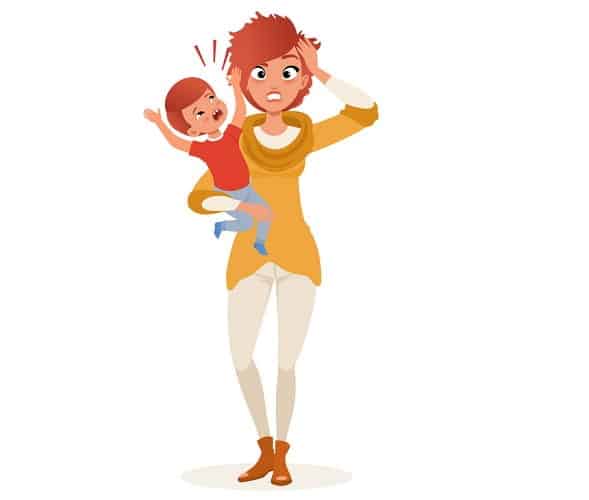
So the combination of a tired, stubborn toddler and exhaustion from lack of sleep can result in very unhappy parents. And when we are unhappy and tired, we tend to be more strict and demanding and less empathetic and playful. Our behavior influences our child and it all goes into a nasty vicious circle. Help!
First, let’s remind ourselves that this will pass in time. Not much help at the moment, but it helps to set the mindset we need to survive this. Accept that your child is in control of their sleep, all you can do is set up the best possible conditions for it.
Even the most restless toddlers get sleepy after a few hours of physical activity in the fresh air. Ditch those strollers and make them walk, run, spin and climb. Keep some sort of long and cozy sleeping routine. Bath, book, cuddle, lights off. Remember this is about independence and there could be lots of accumulated frustrations during the day. Let your toddler make lots of choices, what they wear, how they play, what book to read. Don’t make sleeping a battle of wills, because you will probably lose it.
For us, it took around 3 weeks – 3 long weeks. But now, we are back into a nice, stable schedule. Hurray!
Give me, I want to help! Inclusion in activities
One new and surprising behavior is a willingness to help around all chores. It is really a joy to see how your child is looking up to you and wants to help. Because that is so rare and will be even rarer in the future.
From helping to clean up her toys, washing laundry, mopping the floor, changing the bed… She will happily jump and help in the chores. Ok, most of the time you would do the chores alone 5 times faster and “helping” often means more “mess” but no matter. Her willingness to help is also the product of her need for independence that we mentioned in the above sections.
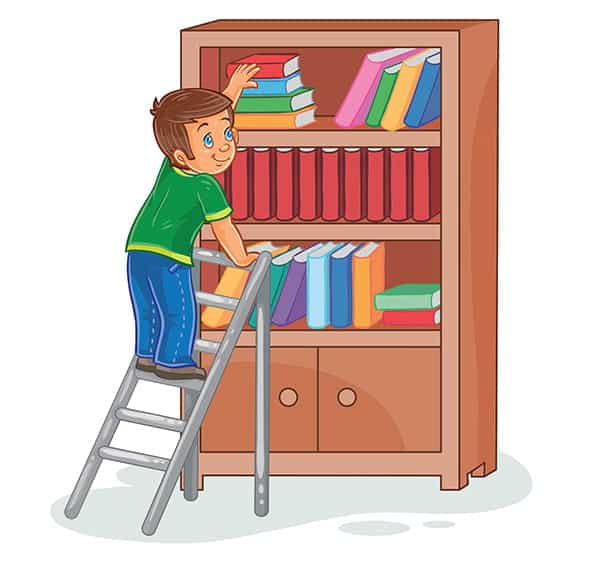
It is important to include the toddler in everyday activities like cleaning and house chores. That will teach them from an early age that house chores are normal and somebody needs to do them. And they can also serve as any other activity. Instead of 15 minutes of folding clothes after washing alone, and 15 minutes playing with toddler and blocks, you can spend 30 minutes folding clothes together. Both are good activities but this way you will at least spend 30 minutes with a child, not just 15.
But of course, not all is sunshine and butterflies. There are times when she just doesn’t feel like and would rather run around the house instead of cleaning her toys. Then a lot of patience is required and calling her to help clean up the toys. But by now, she already knows we will need to clean up all toys when going to sleep.
To her, house chores are actually a fun activity. Her favorites are changing the sheets on the bed and putting dirty laundry in the washing machine and turning the machine on. So it is important to make those activities as something fun (really not that hard for toddlers) and they will learn that those chores are something we need to do regularly. And hopefully, when she gets older, those things won’t be something that creates too big of aversion as house chores usually do.
What is poo and where did it go?
The twentieth month brought one new issue. Constipation. After a few days without a poo, getting it out was hard and painful. Next time, when she had to go, she didn’t want to. So again it was a few days. And so the circle continued.
It is actually a very frequent issue, especially around this age, or a bit later when the child starts to use the potty. They can be reluctant to stop with the activity to go and poop. Some children are scared of seeing a poo in the potty or are more private and don’t want to do it outside of their home. There could be lots of reasons for holding a poo. The good news is that they are rarely physiological.
We tried all the “known” remedies: prunes, yogurt, hemp seeds. But in this case, the cause was psychological – fear of the pain. She had the urge but didn’t want to poop. All we could do was to try to keep the stool soft so there is no more pain. We ate lots and lots of fiber, drink plenty of water and kept active.

We talked a lot about the whole process of eating and digesting. Why we need food, where is it going and why do we need to poop. This, of course, depends on the age and level of understanding of your toddler. “What is poo?” is an amazing book, full of really interesting information. I will admit I was skeptical at first, but it is now one of L’s favorite books. Illustrations are very cute and the text is age-appropriate and informative. Did you know wombat has a square-shaped poop? You’re welcome!
With all of that and some time, the issue resolved in a few weeks. It can always come back though and it’s good to be aware of it. It is wise to bring it to your child’s pediatrician and maybe even specialist if it lasts long or you don’t see any improvement. There could be some medical causes as well and it’s good to rule it out. And there are lots of stool softeners which can help to avoid the pain which caused the fear in the first place.
Some funny highlights of 19 and 20 month
- She has 3-4 favorite words. And she will make sure you hear them 20 times per minute.
- When you want her to walk she just sticks to you until you start to carry her. And when you want her to come to you or stop, she just runs around and away from you.
- On a mission that mom and dad always have slippers on feet.
- Her favorite word is NO.
- She will insist on doing it alone. And that means (in case of eating or drinking) that another part of clothes goes to washing.
- She loves to be involved in household chores. Her favorite activity is doing laundry.
- We have to listen to Baby Shark at least 10 times per day.
And that is the short description of the 19th and 20th month with baby. A lot happened in these two months but we don’t want this article to turn into a short book. Days are still dynamic and unpredictable, and they fly with lightning speed. So join us again in the 21st and 22nd month of toddler’s life, we are sure it will be as intensive as this period. And what to say but stay strong in all the hardships and enjoy all the good moments as much as you can.
If you’re searching for some great STEM Activities for Kids and Child development tips, you’re in the right place! Check the Categories below to find the right activity for you.

STEM Science
Videos, guides and explanations about STEM Science in a step-by-step way with materials you probably already have at your home. Find new Science ideas.
Read more
STEM Technology
Videos, guides and explanations about STEM Technology in a step-by-step way with materials you probably already have at your home. Find new Technology ideas.
Read more
STEM Engineering
Videos, guides and explanations about STEM Engineering in a step-by-step way with materials you probably already have at your home. New Engineering ideas!
Read more
STEM Math
Videos, guides and explanations about STEM Math in a step-by-step way with materials you probably already have at your home. Find new Mathematics ideas.
Read more
Psychology
Find out all about development psychology topics that you always wanted to know. Here are articles from child psychology and development psychology overall.
Read more
First year of Child’s Life
Following a Child’s development every month from its birth. Personal experiences and tips on how to cope with challenges that you will face in parenting.
Read more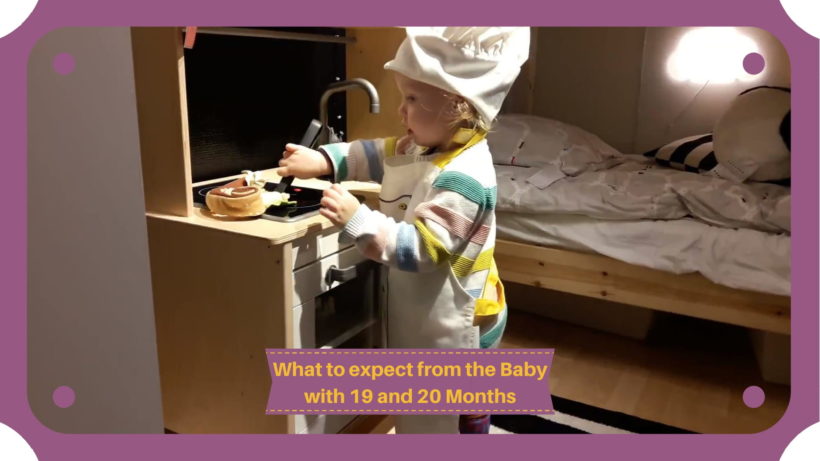
One thought on “What to expect from the Baby in Nineteenth and Twentieth Month”